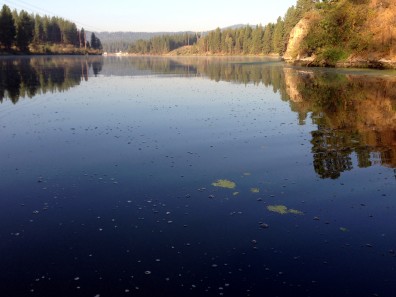New Paper Highlights “Mystery Electron Acceptors”
john_harrisonMethane is an important greenhouse gas, and lakes and reservoirs account for roughly 10% of methane flux to the atmosphere globally. The contribution of aquatic sediments to atmospheric methane would be much greater if it were not for methane oxidation, the microbial process whereby methane is converted to CO2, a much more soluble, less potent greenhouse gas. A paper just out in Biogeochemistry by Dan Reed, Bridget Deemer, Sigrid Van Grinsven, and John Harrison, titled Are elusive anaerobic pathways key methane sinks in eutrophic lakes and reservoirs? provides new insight into this critical biogeochemical process. In the paper, Reed et al. show that concentrations of typical inorganic electron acceptors (compounds like oxygen, nitrate, and sulfate) are often insufficient to support observed rates of methane oxidation. To resolve this issue, we postulate that organic matter can serve as an important, though often-ignored, alternative electron acceptor in lakes and reservoirs, fueling high rates of methane oxidation, and urge the broader community to directly test this hypothesis.



